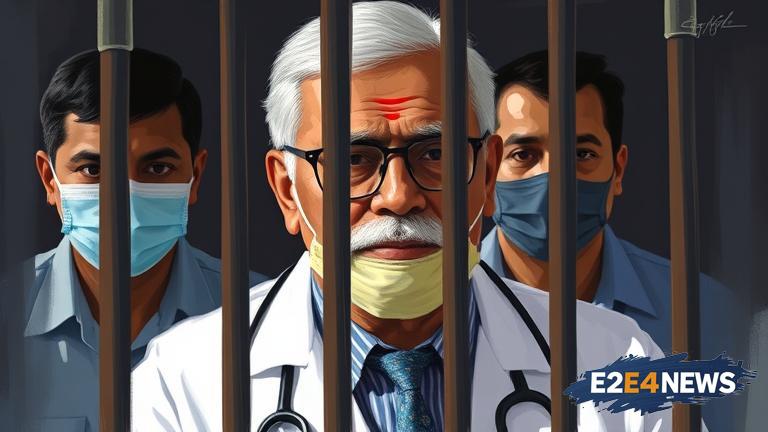In a shocking turn of events, a doctor in India has been sentenced to 5 years in prison for accepting bribes from patients. The doctor, who was found guilty of bribery, was sentenced by a special court in the state of Odisha. The court also imposed a fine of Rs 10,000 on the doctor. The case against the doctor was registered in 2015, after a patient complained that the doctor had demanded a bribe from him for treating his wife. The patient had alleged that the doctor had demanded Rs 10,000 for performing a surgery on his wife. The doctor was arrested and charged with bribery under the Prevention of Corruption Act. The prosecution presented several witnesses and evidence against the doctor, which led to his conviction. The court found the doctor guilty of accepting bribes and sentenced him to 5 years in prison. The sentence has been welcomed by anti-corruption activists, who say that it will serve as a deterrent to other corrupt officials. The case has also highlighted the need for greater transparency and accountability in the healthcare sector. The doctor’s conviction is a rare instance of a medical professional being held accountable for corruption in India. The case has sparked widespread debate about the prevalence of corruption in the healthcare sector and the need for stricter laws to prevent such incidents. The Indian government has been trying to tackle corruption in the healthcare sector through various measures, including the introduction of new laws and regulations. However, much more needs to be done to root out corruption and ensure that patients receive fair and honest treatment. The doctor’s sentence is a step in the right direction, but it is only the beginning of a long journey towards a corruption-free healthcare sector. The case has also raised questions about the role of medical professionals in preventing corruption. Doctors and other medical professionals have a critical role to play in preventing corruption and ensuring that patients receive fair and honest treatment. They must be aware of the laws and regulations that govern their profession and must adhere to the highest standards of ethics and integrity. The case has also highlighted the importance of whistleblower protection laws, which allow patients and others to report instances of corruption without fear of reprisal. The Indian government must do more to protect whistleblowers and encourage them to come forward with information about corruption. The case is a reminder that corruption is a pervasive problem that affects all aspects of society, including the healthcare sector. It is only through the collective efforts of governments, civil society, and individuals that we can hope to root out corruption and create a more just and equitable society. The doctor’s sentence is a small step towards a corruption-free India, but it is an important one. It shows that the law is willing to hold corrupt officials accountable and that there are consequences for engaging in corrupt activities. The case has also sparked a wider debate about the need for greater transparency and accountability in all aspects of society. It is only through transparency and accountability that we can hope to prevent corruption and ensure that power is used for the greater good. The Indian government must do more to promote transparency and accountability, including through the introduction of new laws and regulations. The case is a reminder that the fight against corruption is ongoing and that there is still much work to be done. However, with the help of courageous whistleblowers and a commitment to transparency and accountability, we can hope to create a more just and equitable society.





